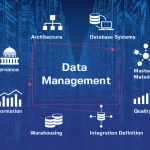General Objective
This training program aims to enable participants to acquire the knowledge and use the necessary tools related to financial accounting and financial analysis, in addition to revenue management and accounts receivable. This will empower them to apply these skills in their daily work to improve efficiency.
Training Methodology
This training program is based on a set of interactive activities, group and individual exercises, case studies, and discussions, in addition to introducing the latest theories and thinking methods. The training environment will provide the necessary support to encourage participants of all experience levels to share their currently used methodologies as well as try new ones introduced during this program.
The trainer will be readily available to answer any questions trainees may have and will play a supportive role in building and applying new methodologies. The aim is to give trainees who attend this course a strong sense of the value provided by this blend of learning styles and methods.
Impact of Training on the Organization/Company
Employees attending this training program will bring the following benefits to the organization/company:
- Learning from success by examining others’ experiences.
- Providing practical examples of best practices and well-documented failures to maximize the chances of financial success within the organization.
- Gaining the skills and confidence to handle the organization’s finances.
Impact of Training on the Trainee
By the end of this training program, each trainee will, God willing, be able to:
- Study the concept of accounting.
- Identify the objectives of financial accounting.
- Understand the functions of accounting.
- Recognize the stakeholders.
- Understand the characteristics of accounting information.
- Learn the principles of financial accounting.
- Understand financial accounting processes.
- Explain what adjusting entries are and how to prepare them at the end of the fiscal year.
- Know how to prepare different financial statements.
Program Topics (Outline)
Day 1:
Session 1: Introduction to Accounting – Basic Accounting Concepts
- Pre-assessment test to determine participants’ level before starting the program.
- Introduction to the training program.
- Definition of accounting.
- Objectives of financial accounting.
- Functions of accounting.
- Stakeholders.
- Characteristics of accounting information.
- Branches of accounting.
- Principles of financial accounting.
Session 2: Financial Accounting Processes
- Recording financial transactions.
- The accounting cycle.
Day 2:
Session 1: Continuation of Financial Accounting Processes
- Balance sheet equation.
- Types of accounting errors and important guidelines to avoid and resolve them.
Session 2: What Are Adjusting Entries and How to Prepare Them at the End of the Fiscal Year
- Introduction to adjusting entries.
- Difference between inventory and adjusting entries.
- Adjusting entries for accounts.
- Adjusting entries for expenses.
Day 3:
Session 1: Financial Statements
- Financial statements.
- Main objectives of financial statements.
- Statement of financial position – components and importance.
Session 2: Continuation of Financial Statements
- Income statement – components and importance.
- Cash flow statement.
- Notes to the financial statements and their importance.
- Post-training assessment to determine participants’ level after completing the program.
- Issuing attendance certificates to trainees.
- Taking photos and a group picture of the training program.
Required Tools and Materials for Training
- Equipment: In case of remote training, a device connected to the internet and the Zoom program.
- Training materials: A complete training package is provided for participants.
- Others: Trainee guide for the program, program workbook.
Target Audience
This training program is intended for:
- Middle managers and administrative staff who do not have accounting-related roles (doctors, lawyers, chemists, designers, architects, engineers, and others) and require knowledge of financial information to develop their activities.
- Employees in departments related to financial affairs.
- Financial department staff.
- Anyone interested in a career in finance.





